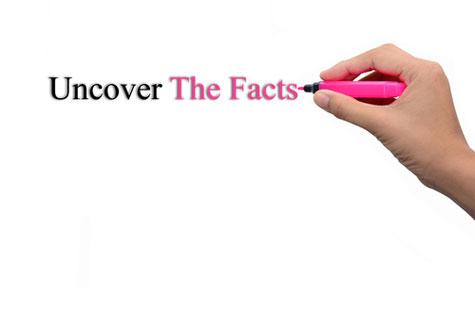I find truth a very convenient word. It’s valuable in that it can indicate a person’s preferences, whilst possibly covering up the unseen. It is used as an absolute, when often someone’s truth may be just one drop in an ocean of possibility.
We’ve always been taught that the truth is an actual state of a matter, and that’s how the dictionary defines it. But are we at times misinterpreting this word? Should we, when needed, be replacing ‘truth’ with ‘fact’ to be more precise, and to show that in our truth we are giving one version, not an absolute? Facts are an actual state of matter.
Our truth may often be simply our own personal interpretation of ourselves, life and others. Our truth may be just one version of a situation.
This is not necessarily a ‘wrong’, but it is based on our filters, and we all have these filters. The human brain is bombarded with hundreds of bits of information coming from the world around us at any given time, but we are not capable of receiving and processing all of this information at once, so we will filter it by way of deleting, distorting and generalising that which comes our way.
This filtering is based on several things such as our beliefs, our thoughts, our emotions, our upbringing, our culture, our religion, our community, our way of life, our social circle, our schooling and our values, to name a few. We create life preferences, and we feel safe, secure and comfortable in those preferences.
I often think of an iceberg as a handy metaphor for personal versions of what is truth. An iceberg, on average, only shows 10% of itself above the surface of the ocean. With an iceberg, there is so much more happening underneath the surface that we don’t necessarily see. And we don’t necessarily see what’s below the surface because that is not what we are filtering in.
We believe, feel about, think about and act on what we choose to bring into our focus and align ourselves with – through that filtering system mentioned above. Like an iceberg, our personal idea of what is true may often too be a percentage of the whole array of possibility that lies beneath our surface level filtering.
We are often prone to using our truth against others, especially in times of conflict: ‘we are right, they are wrong.’
But what can be more useful in conflict resolution is to seek facts over truth. Facts are empirical data: proven, tangible and real. Facts are information that justifies a belief. Facts provide actual evidence that allow us to intelligently resolve an issue and to move forward successfully.
We can also use the convenience of our personal truth to remain inflexible when dealing with other’s needs, wants, character or preferences. Again, your truth is simply your preference, and something that you have chosen to believe in, right or wrong. But just as we may have our own personal, spiritual or emotional truths, so do others, which are just as believable and right for them.
When we aim to embrace the idea that truth often really just outlines personal preferences, we can understand that no one is necessarily wrong, just different. Emotional intelligence would dictate recognising those differences and working together for a win-win outcome.
Making decisions to resolve a conflict or situation based on someone’s truth may prove more difficult than just asking for the facts which are void of emotion, filtering and preference, allow for a detached and whole viewpoint and are what they are without being diluted in a sea of personal opinion.
So, if it resonates and applies to your personal challenge at present, discuss facts over your own version of the truth or another’s. This way, you are more likely to progress sooner to a resolution.
Our truth often steers us to see life for who we are. Facts show us what it is.








 Agree (0)
Agree (0) Disagree (
Disagree (











__small.png)










